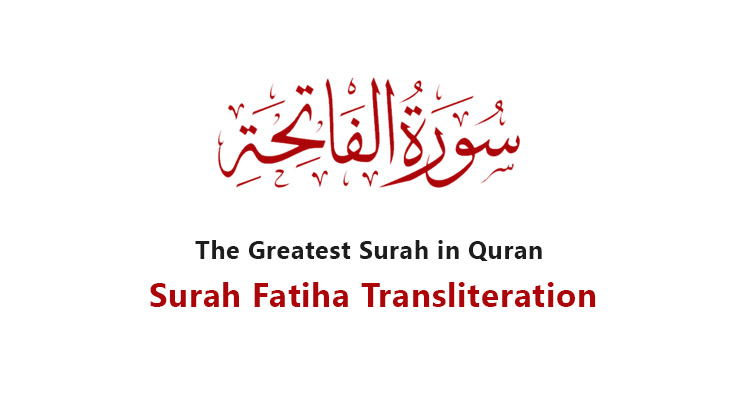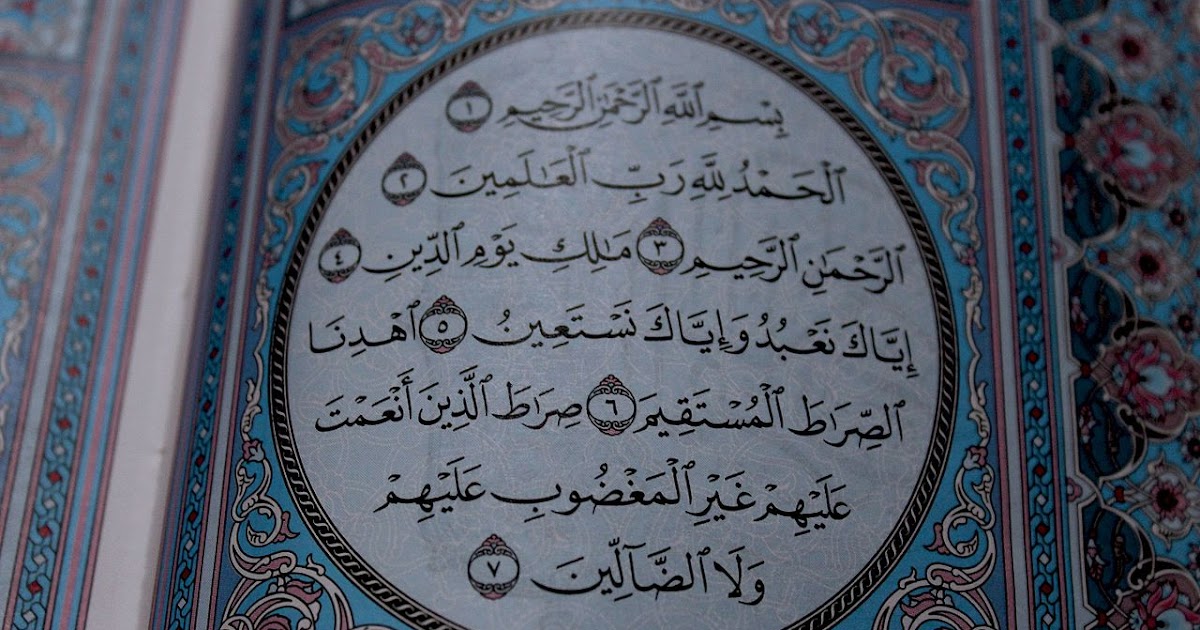

Muslims attribute special significance to some surahs for their virtues and benefits ( فضائل, faḍā’il) described in the hadith.

Al-Fatiha is also known by several other names, such as Al-Hamd (The Praise), As-Salah (The Prayer), Umm al-Kitab (Mother of the Book), Umm al-Quran (Mother of the Quran), Sab'a min al-Mathani (Seven Repeated Ones, from Quran 15:87), and Ash-Shifa' (The Cure). The word itself comes from the root f-t-ḥ ( ف ت ح), which means "to open, explain, disclose, conquer", etc. The name Al-Fatiha ("the Opener") could refer to the surah being the first in the Mus'hafs, the first to be recited in each rakat of salah, or to the manner of its usage in many Islamic traditions as an opening prayer. Most narrators recorded that al-Fātiḥah was the first complete Surah revealed to Muhammad. The most commonly accepted view about the origins of the surah is the view of Ibn Abbas, among others, that Al-Fatiha is a Meccan surah, although some believe that it is either a Medinan surah or was revealed in both Mecca and Medina.

Other Muslim commentators have interpreted these verses as referring exclusively not to a specific group of people but instead interpret these in the more general sense. The Noble Quran (Hilali–Khan), which is said to be the most widely disseminated Quran in most Islamic bookstores and Sunni mosques throughout the English-speaking world, defines the two groups as Jews and Christians respectively. : 45 Others view this as an exclusive condemnation of all Jews and Christians from all times.

Some Muslim commentators believe Jews and Christians are examples of those evoking God's anger and those who went astray, respectively. The last three verses, which comprise the servant's half, begin with the servant stating that they worship and seek only Allah's help (verse 4/5), asking Him to guide them to the Sirat al-Mustaqim (the Straight Path) of those who God has been bountiful to, and not of those who have earned His anger (verse 5-6/6-7).
FATIHA TRANSLITERATION FULL
The chapter begins by praising Allah with the phrase Alhamdulillah, and stating that it is Allah who has full authority over all creations (verse 1/2), that He is Ar-Rahman Ar-Rahim or the Most Gracious and Most Merciful (verse 2/3), and that He is and will be the true owner of everything and everyone on the Day of Judgement (verse 3/4). There is disagreement as to whether the Bismillah is the first verse of the surah, or even a verse in the first place. Surah Al-Fatiha is narrated in the Hadith to have been divided into two halves between Allah and His servant (the person reciting), the first three verses being His half and last three being the servant's. Some Muslims interpret it as a reference to an implied ability of the Surah to open a person to faith in God. The primary literal meaning of the expression "Al-Fatiha " is "The Opener/The Key," which could refer to this Surah being the first in the Quran, the first chapter recited in full in every rakat of salah, or to the manner in which it serves as an opening for many functions in everyday Islamic life. Quranic chapter titles are not considered by Muslims to be part of the divine revelation of the Quran. Al-Fatiha is recited in Muslim obligatory and voluntary prayers, known as salah. It consists of 7 ayah (verses) which are a prayer for guidance and mercy. 'The Opening' or 'The Opener'), is the first surah (chapter) of the Quran. This Qur'an, commissioned by sultan Al-Ashraf Sha'ban (1363 - 1377), is part of the National Library of Egypt's Collection of Mamluk Qur'an Manuscripts inscribed in the UNESCO Memory of the World RegisterĪl-Fatiha (alternatively transliterated Al-Fātiḥa or Al-Fātiḥah Arabic: ٱلْفَاتِحَة, IPA: lit. Illuminated opening with chapter Al-Fatiha in muhaqqaq script.


 0 kommentar(er)
0 kommentar(er)
